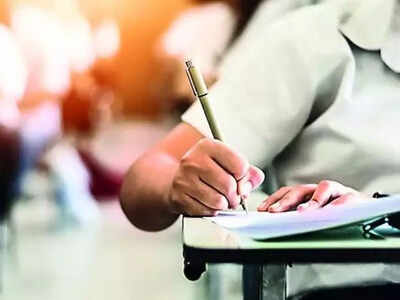
Type 1 diabetes (T1D) impacts a substantial number of students in India, creating significant challenges, particularly during exams. According to a TNN report, over 800,000 children nationwide live with this condition, including 8,000 in Kerala. Of these, 2,500 students are supported through the state government’s ‘Mithai’ project, which addresses their unique needs.
Recognising the gap in exam regulations, the Kerala State Human Rights Commission (SHRC) asked that the CBSE submit a report on providing T1D students with additional time during exams. While CBSE has taken supportive measures such as permitting needed materials and medical devices in exam halls, it does not yet grant extra time, as Kerala’s state boards do.
Existing CBSE Guidelines for Students with Type-1 diabetes
The Central Board of Secondary Education (CBSE) has made efforts to accommodate students with T1D. Since its 2017 circular, the board has provided specific facilities to ensure these students can manage their medical needs during exams. The updated guidelines released earlier in February 2024 now allow students to bring the following items to the exam hall in transparent pouches or boxes:
- Essential Items: Sugar tablets, chocolates, candies, fruits (e.g., bananas, apples), high-protein snacks like sandwiches, water bottles (500 ml), and prescribed medicines.
- Medical Devices: Glucometers, glucose testing strips, continuous glucose monitoring (CGM) devices, flash glucose monitoring (FGM) devices, and insulin pumps.
Students are required to follow a structured process to avail these facilities, which includes early registration, submission of necessary documents, and notifying the requirements to the exam centres in advance.
However, it is important to note that the listed benefits for Type-1 diabetes candidates do not currently include any clear provision for extra time during exams.
Kerala’s Model: Extra Time for Type-1 diabetes Students
In contrast, the Kerala state government has implemented a more student-centric approach. For SSLC (10th grade) and Plus Two (12th grade) board exams, students with T1D receive an additional 20 minutes per hour to manage their condition during tests. This policy aims to take into account the interruptions caused by managing fluctuating blood sugar levels during stressful situations like exams.
Following this, a recent plea to the State Human Rights Commission (SHRC) by Bushra Shihab from Kerala highlights the disparity between state and CBSE provisions. The petitioner urged CBSE to adopt similar measures, ensuring parity in exam support. Following this, the SHRC directed CBSE to submit a report within a month on whether extra time can be granted to T1D students, akin to Kerala’s model.
Why is this move necessary?
Aligning CBSE’s policies with Kerala’s inclusive approach could establish a national benchmark for equitable educational support. As one of India’s largest educational boards, CBSE serves over 20 lakh students annually, making such a change impactful on a large scale. Granting extra time during exams would help alleviate the stress faced by students with Type 1 diabetes (T1D), ensuring they can manage their condition effectively while competing on equal footing.

